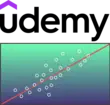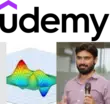-
- Professional Training Course
- (Online)
- Posted 16 hours ago
BSE Data Science for Economics Course - Executive Education
Starts 17 Feb at Barcelona School of Economics in Barcelona, Spain
-
- Professional Training Course
- Posted 6 days ago
BSE Competition Economics Courses - Executive Education
Starts 20 Oct at Barcelona School of Economics in Barcelona, Spain -
- Summer School
- Posted 6 days ago
BSE Summer School 2026: Economics, Finance, Data Science, and related fields
Starts 22 Jun at Barcelona School of Economics in Barcelona, Spain
-
- Professional Training Course
- (Online)
- Posted 1 week ago
BSE Macroeconometrics Courses - Executive Education
at Barcelona School of Economics in Barcelona, Spain
-
- PhD Program, Supplementary Course, Program
- (Hybrid)
- Posted 1 week ago
International Doctoral Courses and Seminars in Health Economics and Policy
at Swiss Society of Health Economics (sggö) in Lucerne, Switzerland
-
- Summer School
- Posted 2 weeks ago
Oxford University Economics Summer School
Starts 7 Sep at Department of Economics, University of Oxford in Oxford, United Kingdom
-
- Summer School
- Posted 3 weeks ago
Fundamentals of Graduate Economics and Finance
Starts 22 Jun at Department of Economics, University of Oxford in Oxford, United Kingdom
-
- Professional Training Course
- (Online)
- Posted 4 weeks ago
BSE Microeconometrics Courses - Executive Education
at Barcelona School of Economics in Barcelona, Spain
-
- PhD Program, Supplementary Course, Program
- Posted 3 weeks ago
Advanced PhD Courses
at Kiel Institute for the World Economy (IFW) in Kiel, Germany
-
- Course
- Posted 3 weeks ago
Winter School: Assessing Economic Policies Using the Real Options Methodology
Starts 2 Feb at Wageningen University in Wageningen, Netherlands
-
- Supplementary Course, Online Course
- (Online)
- Posted 1 month ago
Process Mining: Data science in Action
at Coursera
-
- Summer School
- Posted 1 month ago
UNSW Sydney Summer School (in February 2026)
Starts 9 Feb at University of New South Wales in Kensington, Australia
-
- Online Course
- (Online)
- Posted 1 month ago
Microeconomics: The Power of Markets (Online Course)
at Coursera
-
- Supplementary Course, Online Course
- (Online)
- Posted 2 months ago
Regression Analysis / Data Analytics in Regression
at Udemy
-
- Supplementary Course, Online Course
- (Online)
- Posted 2 months ago
Econometrics with EViews: Time Series, and Panel Data
at Udemy
-
- Summer School
- Posted 3 months ago
Economics Summer School 2025: Macroeconomic Policy & Financial Stability Methods 22-26 September 2025
Starts 22 Sep at University of Glasgow in Glasgow, United Kingdom -
- Supplementary Course, Online Course
- (Online)
- Posted 5 months ago
Game Theory II: Advanced Applications
at Coursera
-
- Supplementary Course, Online Course
- (Online)
- Posted 5 months ago
Introduction to Sustainable Finance (Online Course)
at Udemy
-
- Online Course
- (Online)
- Posted 8 months ago
(Oxford) Diploma : Macroeconomics/Behavioural Economics
at Udemy
-
- Online Course
- (Online)
- Posted 3 years ago
Strategic Business Analytics
at Coursera
-
- Online Course
- (Online)
- Posted 5 years ago
Online Certificate Courses
at London School of Economics & Political Science (LSE) in London, United Kingdom
-
- Supplementary Course
- (Online)
- Posted 5 years ago
Principles of Economics: Microeconomics
at Harvard University in United States
-
- Online Course
- (Online)
- Posted 5 years ago
Principles of Economics
at Stanford University in United States
-
- Supplementary Course
- (Online)
- Posted 5 years ago
Inequality and Labour Markets
at University of Oxford in United Kingdom
-
- Supplementary Course
- (Online)
- Posted 5 years ago
Principles of Economics: Macroeconomics
at Harvard University in United States
Pagination
















